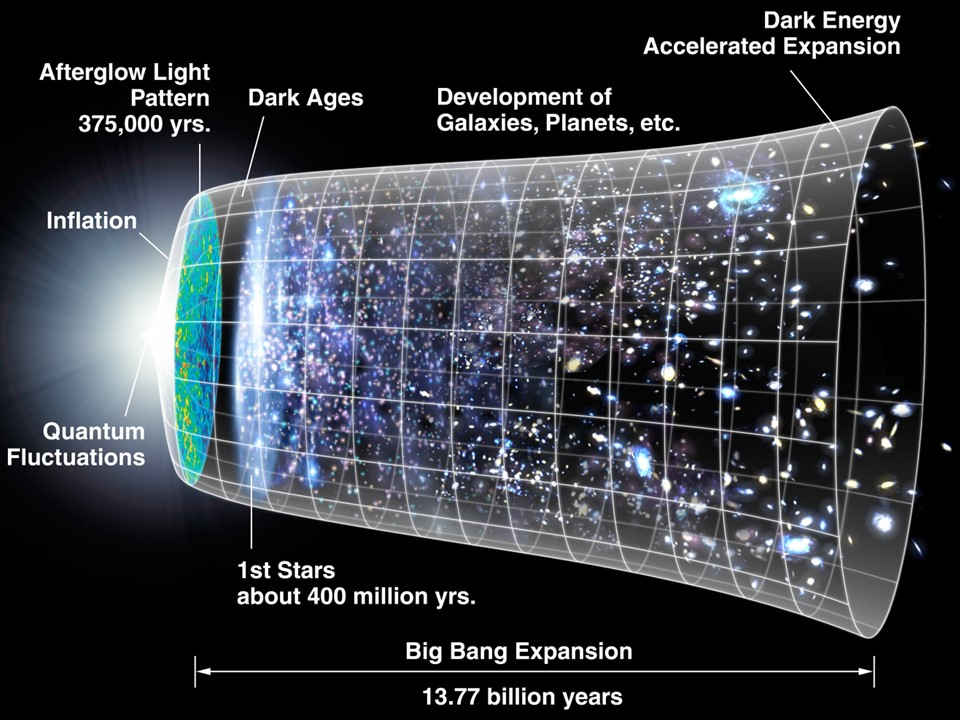
Alexander Friedmann (1888–1925) was a Russian scientist who was the first to propose the theory of expanding universe, discovering a set of equations, now called Friedmann equations – before dying prematurely aged only 37.
Not only that, Friedmann also gave lectures on aeronautics for pilots and flew aircraft during the first world war. His students included such distinguished scientists as George Gamow and Vladimir Fock.
Not only that, Friedmann also gave lectures on aeronautics for pilots and flew aircraft during the first world war. His students included such distinguished scientists as George Gamow and Vladimir Fock.
Early years
Friedmann was born to a very artistic household – his father was a professional ballet dancer while his mother was a trained pianist. From an early age, he was interested in the arts, sciences and politics. When he was 17, Friedmann was a student leader at his high school.
In 1907, when Friedmann had freshly joined the St Petersburg university for a physics degree, his father passed away suddenly. Consequently, Friedmann had to work part time as a tutor, earning a small salary that would support his education.
Friedmann received a bachelor's degree in 1910 and quickly joined Saint Petersburg Mining Institute as a lecturer.
Training
By 1913, Friedmann also completed his master’s degree and began taking part in flight lessons to study meteorology. This training came handy during the first World War, because Friedmann decided to volunteer in the air force. He was soon involved in bomb raids.
Friedmann used his physics knowledge in modelling bombing targets and helped other pilots too. Considering his aviation, scientific and leadership skills, Friedmann was promoted to the topmost position in an airplane factory.
His love of the pure sciences encouraged Friedmann to exchange letters, while fighting the war, with mathematician Vladimir Steklov – a friend from college days, in order to stay updated on new activities in the world of physics.
His love of the pure sciences encouraged Friedmann to exchange letters, while fighting the war, with mathematician Vladimir Steklov – a friend from college days, in order to stay updated on new activities in the world of physics.
A new theory
German-born physicist Albert Einstein published a ground-breaking theory of gravity in 1916 that made him a celebrity figure. After the world war was over, Friedmann regretted participating, "I achieved what I set out to do, but what’s the use of it all now?" Friedmann decided to return his focus on physics.
In 1919, Arthur Eddington confirmed Einstein's theory by observing how stars near the sun were displaced from their original positions, due to curvature by mass. Friedmann wrote to Paul Ehrenfest a year later regarding his interest in the general theory of relativity.
In June of 1922, Friedmann introduced his own idea that the entire universe’s curvature could be a function of time.
In June of 1922, Friedmann introduced his own idea that the entire universe’s curvature could be a function of time.
Friedmann solved the field equations in general relativity to suggest three cases: 1) The universe could be expanding over time. 2) The universe could be shrinking over time or 3) The universe’s curvature could change periodically over time.
Revolt
Einstein, a supporter of steady state theory, did not view Friedmann’s evolving universe work favorably. Friedmann immediately wrote a letter to Albert Einstein requesting him to reconsider.
He wrote: “Should you find the calculations presented in my letter correct, please be so kind as to inform the editors of the Zeitschrift für Physik about it, and publish a correction to your statement.”
The letter reached Berlin, but since Einstein was touring Japan at the time, he did not read it until six months later. In 1923, Einstein admitted his error and wrote to Zeitschrift für Physik:
“My earlier criticism was based on an error in my calculations. I consider that Mr Friedmann’s results are correct and shed new light.”
Friedmann gained a widespread recognition in the scientific community as a result of proving Einstein wrong. He was invited to colleges across Europe to explain his findings.
Sadly, Friedmann died in 1925 because of a misdiagnosed typhoid fever. He was only 37 years old. Friedmann's theory was verified by Edwin Hubble 4 years later, who discovered red shift in the galaxies – implying an expanding universe.

Summing up
If Alexander Friedmann were alive in 1929 when Hubble found evidence for a changing universe, he should have won the Nobel Prize in physics. He was an adventurous man who did the most amazing work in the last few years of his life.
Friedmann received many honors after death, including a crater on the Moon which is named after him. Also, a prestigious Friedmann Prize is awarded once every three years to a single scientist for outstanding work done in cosmology.
Friedmann received many honors after death, including a crater on the Moon which is named after him. Also, a prestigious Friedmann Prize is awarded once every three years to a single scientist for outstanding work done in cosmology.






 Physics, astronomy and science history blog for students
Physics, astronomy and science history blog for students
Responsive Ad Slot